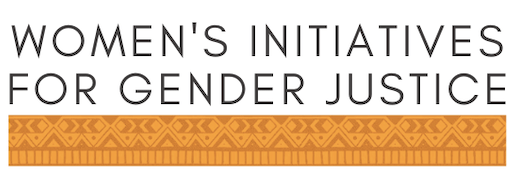
Civil society statement on situation in the CAR
On 30 March 2013, civil society organisations operating in the Central African Republic (CAR) published a statement on the current humanitarian situation in the country, which has been deteriorating since violence broke out on 10 December 2012. As set out in the statement, more than 700 schools in the country have closed, there have been significant electricity and water cuts, and public and private residences have been pillaged. Civilians have been killed and there have been reports of sexual violence in the Sangha Mbaéré region.
The organisations who have signed the statement are calling for a meeting between Central Africans to define the contours of the transition; the establishment of transitional bodies which are balanced in terms of gender and geographic representation; the establishment of a compensation fund for victims of armed violence; a disarmament, demobilisation, and reintegration program; the prosecution of perpetrators of human rights violations; the reestablishment of the free movement of goods and persons throughout the country; and the reestablishment of basic social services across the CAR.
Violence in the CAR escalated in December 2012, when the Seleka coalition started their advance on Bangui, having already captured four strategically important cities, including Kago-Bandoro, Ndele, Bria, and Bambari, as well as about a dozen smaller villages. The Seleka coalition is composed of at least three armed rebel groups that have been operating in northern CAR since 2003. Although a ceasefire was signed between the Seleka coalition and President Bozizé in January 2013, it was not adhered to and on 24 March 2013, the Seleka coalition, led by Michel Djotodia, seized Bangui, capital of the CAR. President Bozizé reportedly fled to Cameroon, and on 25 March 2013, Michel Djotodia declared himself President and Defence Minister of the CAR, and suspended the National Assembly and Constitution. Djotodia subsequently set up a transitional Cabinet and appointed several leaders of the Seleka coalition to run the existing government ministries.
The UN has described the political and security situation in the CAR as ‘highly volatile’, and has expressed concern about the very limited access to humanitarian aid, and increased reports of looting, child recruitment and crimes of sexual violence. The IFRC estimates that more than 22,000 refugees have fled from the CAR to the Democratic Republic of the Congo since the intensification of violence in the CAR in December, 5,000 of whom have crossed the border since the CAR Government was overthrown by the Seleka coalition on 24 March 2013.
Read the statement from CAR civil society in French
Read our translation of the statement in English
The Women’s Initiatives has been working in the CAR since 2006 and has held consultations, training workshops, and public marches in support of victims/survivors and advocating for gender justice. In 2011, in collaboration with local partner Jeunesse Unie pour la Protection de l’Environnement et le Développement Communautaire (JUPEDEC), and international partner WITNESS, we co-produced a gender justice video on the impact of the Lord’s Resistance Army (LRA) on the south eastern provinces of CAR. The LRA does not appear to be a member of the Seleka coalition.
Read a previous statement from CAR civil society
Read In Pursuit of Peace (p 25-33) for statements from victims groups and women’s rights organisations in the CAR calling for the implementation of the recommendations created during the Inclusive Political Dialogue.
For background information on the Situation in the CAR before the ICC and the case against Jean-Pierre Bemba Gombo, see the Gender Report Card on the ICC.
For updates about the Situation in the CAR, follow us @4GenderJustice
